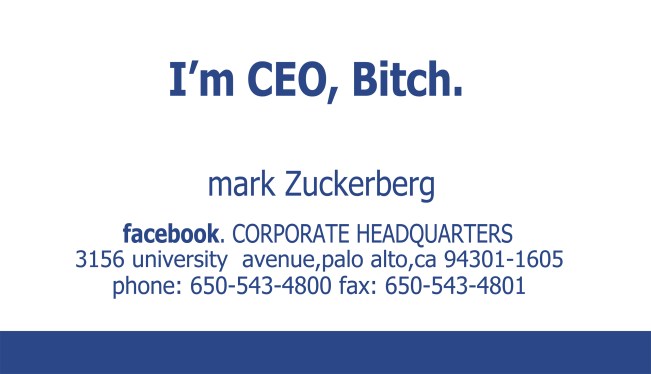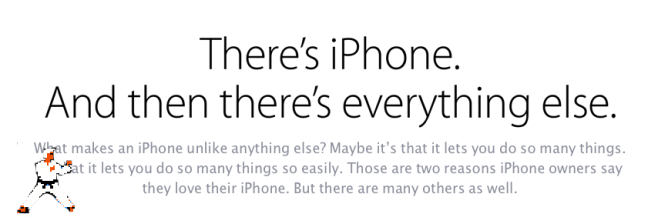Editor’s Note
Alexander Haislip
Contributor
View Bio
This article was originally posted on TechCrunch
Congratulations
To all of you hardworking entrepreneurs and visionaries out there! You’ve reached a significant milestone in your journey: proving to the world that your company is ready to take on the world. But as they say, great things are born from hard work—but even greater things require not just talent, but also an understanding of the systems that make everything tick.
Now, everybody else…
Let’s be honest—there’s a growing trend among ambitious leaders to put their stamp of approval on their companies with something as weighty as a title: CEO. It’s like putting your initials on a framed photo—you know it’s there, but does it really matter?
1️⃣ Why CEOs Fail
CEOs are often elected in an echo chamber. When you’re running a company, your biggest challenge is staying out of the way—allowing your product or service to do its work without getting bogged down by unnecessary distractions. But when you put your name on the brand, it’s no longer just your job—it becomes your reputation, your financial stake, and your moral compass.
This creates a tension that can only be resolved by… well, nobody. CEOs are notoriously bad at scaling back their ambitions to fit reality. Whether they’re talking about datacenters or mobile payments or social sharing, these are all neat-sounding ideas that don’t actually exist yet.
2️⃣ The Problem with Big Talk
Every startup founder has this litmus test: “Can I say it?” If you can’t, then maybe it’s time to shut the heck up and do something productive. CEOs are inherently resistant to this idea—they’re the ones who built the company, after all. But if you don’t set clear goals and show how they’ll be achieved, your whole thing becomes a bit nebulous.
Here’s an example: “I want to revolutionize the datacenter.” Great. How? Who has the resources? What does this actually look like in practice? It sounds grand, but it doesn’t mean anything without actionable steps.
3️⃣ When Big Talk Becomes Bigger Problems
CEOs are often obsessed with metrics that matter less than they should—things like “months left to live given your current burn rate.” This is the stuff of investors and entrepreneurs who have seen startups fail because their leaders didn’t know what they were doing.
But no CEO wants to hear that! Still, if you want to be a real CEO (and not just someone pretending to be one), you need to master this metric. It’s simple: if your burn rate is too high and your revenue isn’t growing fast enough, you’re in trouble. You need to show how you’ll fix both of these issues.
4️⃣ The Solution
Stop putting yourself on the same pedestal as your product or service. CEOs are supposed to be leaders, yes, but they shouldn’t be their companies’ public face—or worse: their financial sponsor. If you’re making decisions about where to allocate resources, who’s going to make those decisions?
You need to separate your professional identity from your company’s success. It might feel uncomfortable at first, but it’s the only way to ensure that your product is winning—rather than you and your ego.
Learning from the pros
CEOs are often better at this stuff because they’re not trying to be all things to all people. They focus on one thing: making their company work. Without distractions, they can build systems, define goals, and execute plans without second-guessing every decision.
For example, Elon Musk is known for his ability to visualize the future and then execute it with precision. He’s not just a CEO—he’s an investor, too. His decisions are guided by his understanding of what works in reality, not just what sounds good on paper.
Another example: Steve Jobs was a master of separating leadership from ownership. He didn’t have to worry about whether Apple would fail because he had personal wealth—it was his responsibility as CEO to ensure that the company succeeded, period.
The lesson?
CEOs aren’t allcreated equal. The best ones are the ones who focus on making their product or service successful, regardless of their own ego. If you want to be a real leader in your industry, you need to prove you can lead without it being about you.
Final Thoughts
The world needs more leaders like Jack Ma and Steve Jobs. But to be a real leader, you need to be humble enough to admit when your company is in trouble—and smart enough to fix it.
Stop pretending that your name is as important as the product you’re building. The rest of the world doesn’t care what your initials say on your resume—or worse: your LinkedIn profile. They only care about what’s happening with your company.
So, stop putting your name on everything. Stop saying “I” when it shouldn’t matter anymore. And most importantly—stop trying to be more than you are.
Because the truth is, if you’re building something huge, the last thing you need is another layer of complexity: your own ego.
Originally posted on TechCrunch



